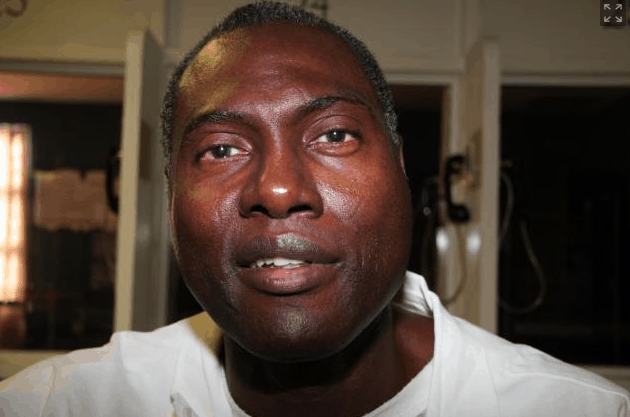
This week, two more primary candidates—Jeb Bush and Donald Trump—joined an increasingly crowded field of 2016 presidential hopefuls. And with caucuses now only six months away, Democrats and Republicans are gearing up for primaries, with candidates from both parties beginning their official campaigns.
Beyond (certainly important) issues like the economy, education, taxes and foreign policy, this season brings a number of issues related to justice that Christian voters should consider when looking at candidates. Understanding where each candidate stands can help you evaluate whether or not his or her positions align with Christian teaching and values.
Here’s a look at four justice issues, and how they might play into the 2016 election.
Immigration
Even though presidential primaries are still months away, immigration reform has already been a headline-grabbing issue. And no matter which party or candidate you most closely align with, immigration reform—in a manner that compassionately handles the legal circumstances facing millions of individuals in the country—is a critical issue for Christians to consider.
As Pastor Samuel Rodriguez said in our interview back in November (when immigration reform was the spotlight after President Barack Obama’s executive action),
I would encourage every Christian to make the following statement: ‘On the issue of immigration, I will not view it or address it via the lens of my political affiliation. I will not view this issue as a Democrat or a Republican. I will view it primarily as a Christ- follower, as a child of the living God.’
Last year, the Evangelical Immigration Table received support from Christian leaders including Jim Wallis, Rich Stearns, Richard Land, Lynne and Bill Hybels, Margaret Feinberg, Shane Claiborne and many others, encouraging fellow Christians to advocate for meaningful, compassionate immigration reform that doesn’t reduce the debate to “open borders and amnesty versus deportations of millions.” They wrote: “This false choice has led to an unacceptable political stalemate at the federal level at a tragic human cost.”
Creation Care
Climate change continues to be a politically polarizing issue among presidential candidates, but an increasing number of Christian leaders are advocating for environmental policies that not only care for creation, but also protect some of the world’s poorest communities.
This week, Pope Francis will release his encyclical, in which he says he believes man-made climate change is having devastating effects on communities suffering from issues such as hunger and poverty. In recent years, even, many evangelical leaders have come together to advocate for creation care initiatives.
Future policies that regulate carbon emissions, support clean energy, enforce environmental protections and further research into people’s effect on the environment can not influence the future of our planet and generations to come, but can also help to alleviate suffering from communities in need right now.
The Sanctity of Life
In the last year, two issues centering on the sanctity of human life have taken center stage in political and legal circles: abortion and capital punishment.
Since 2010, the abortion rate has fallen 12 percent across the country. Interestingly, a drop has been observed in both traditionally conservative and traditionally liberal states. In some states, advocates who helped pass recent policies that limit access to abortion say the new measures are partially to thank for the decline, whereas some pro-choice advocates suggest that increased access to birth control is responsible for the drop.
Understanding how both types of policies—both those that restrict access to abortion providers and those that increase the availability of contraception (in some cases due to insurance coverage)—can lead to fewer abortions can help inform opinions on life issues.
The death penalty has also been a significant political issue in the past year, with several states moving to ban capital punishment, while botched executions in others have led some others to re-examine their position on the issue.
Even though policies on capital punishment will likely be decided on the state level and in the courts, most presidential candidates likely have an established position on the death penalty that can help determine whose aligns with your own.
Human Trafficking and Slavery
Right now, there are more than 27 million people held in slavery around the world—many of whom are children. But, even though global slavery and human trafficking are issues that affect millions, they are not frequently mentioned alongside many of the political issues that grab headlines—but that doesn’t mean they shouldn’t be at the forefront of policy.
This February, Senators Bob Corker and Robert Menendez introduced The End Modern Slavery Initiative Act of 2015, an act that charters a foundation to provide funding for projects that help victims of slavery, bring traffickers to justice and punish corporations that utilize slave labor. As Corker explained,
Human trafficking, in the form of forced labor and sexual exploitation, debt-bondage, involuntary servitude and the sale and exploitation of children—is one of the great moral challenges of our time.
The measure received support from leaders in both parties (Senators John McCain, R-Az., Marco Rubio R-Fl., Jeanne Shaheen D-N.H., Lamar Alexander R-Tn., Richard Blumenthal D-Ct., Chris Coons D-De., and Rob Portman R-Ohio were all cosponsors), as well as organizations like International Justice Mission, the Alliance to End Slavery & Trafficking and United Way Worldwide.
Nonprofit organizations and awareness campaigns play an important role in the effort to end human trafficking, but we shouldn’t neglect advocating for political solutions and government policies that focus on helping victims and ending slavery if real and lasting change is to happen. Obviously, every candidate opposes human trafficking in principle, but voting records and past actions of hopefuls can indicate priorities when it comes to enacting measures that prevent it in the future.






















